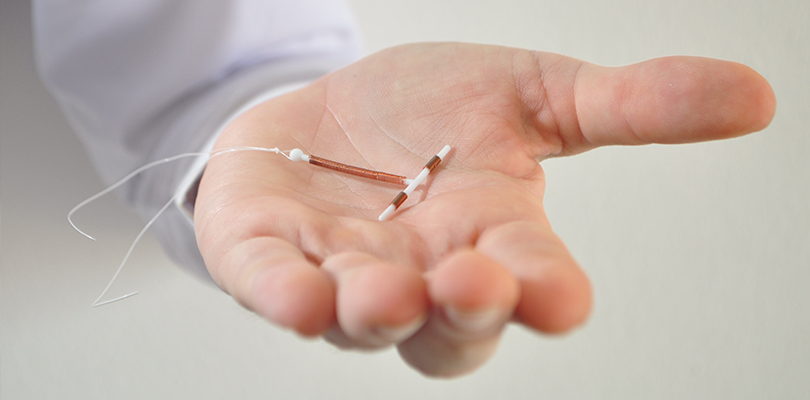How Many Calories Should I Eat a Day?
Sure, you see the label on your food that tells you the calorie count of what you’re about to eat, but do you read it? Many of us disregard this number, not considering the purpose, or not understanding why calories are important and what they do for us.
We’re quick to blame calorie consumption on those few extra pounds around our waist but haven’t thought about how becoming more aware and counting our calories (at least having a rough idea) will help our health.
What Are Calories?
Calories are a vehicle of energy so that our bodies can function. Calories provide units of measurement, and they’re not a tangible thing. These units measure the amount of energy present in the food and drinks we consume every day.
A calorie is the quantity of heat needed to raise the temperature of one gram of water by one degree Celsius. Our bodies ingest calories from food, storing them and using them to fuel our activities throughout the day. In order for us to use the energy from calories, the energy needs to be released from our food first.
Digestion breaks down the food molecules to free the energy, and consequently, a small amount of the energy obtained is used to digest more food.
The Role Calories Play in the Body
Everybody needs calories; they are a necessity. They provide us with the energy to live and maintain our health.
The basic functions that your body performs to stay alive (think about everything your body does that you don’t think twice about), accounts for approximately 75 percent of the calories your body uses every day. The other 25 percent of these calories are spent throughout the day for movement and exercise.
We consume calories in the form of food to fuel our bodies. Calories provide energy and nutrients to maintain strong bones and muscles.
The energy aids in metabolism, which constitutes all the chemical reactions involved in keeping your cells (and yourself) alive. This energy synthesizes new proteins in your body like RNA and DNA.
What Are Empty Calories?
Some calories are superior to others. Empty calories are not your friend, especially if your goal is to improve your health.
This kind of calorie leaves you feeling hungry, which makes you eat or drink more if you’re chasing the feeling of a full stomach. Empty calories also make you feel tired, which means you’re more prone to skip a workout.
One of the biggest culprits of empty calories are in processed foods; they have trans fats, extra fat, added sugars, and more. You’ll also find these calories in items like fast food, junk food, pop, and sugary drinks at your favorite coffeehouse, to name a few.
One quick way to eliminate many empty calories from your diet is to switch to water instead of other drinks.
How Many Calories Should I Eat a Day?
Every vehicle needs fuel in the tank if you want it to run, and your body is no different. Your caloric needs are the number of calories your body requires to perform essential metabolic functions and daily physical activities.
The daily recommended intake for the average adult can range from 1500 to 2500 calories a day. This number is a baseline; due to any number of variables as the number of calories required each day varies from person to person.
Daily calorie intake depends on things like height, weight, activity level, metabolism, sex, age, diet, and more.
How to Track and Calculate Your Daily Calorie Intake
The first step of calculating your daily intake is to be aware of everything you put into your body.
Easy Ways to Track Your Calorie Intake
- Reading labels and using a food scale for an accurate measure will help you better calculate calorie portions.
- Food journals can be helpful, or you can also use food tracker apps which are another great way to monitor your calorie intake.
- There are Calorie Calculators online (Such as MyFitnessPal) that can help you track and manage your calorie consumption. When it comes to calorie-counting, the way to stick with it is to find the tracking system that is easiest for you.
If you just want an estimate of how many calories you should consume each day, you can check out a body mass index (BMI) chart found online or at your physician’s office. Remember, these numbers are approximate, and you need to factor in your health goals: lose weight, gain weight, or maintain your weight.
An excellent place to start with tracking calories is to figure out what your resting energy is. This is the live-and-breathe energy that sustains the body and its organs. This is 60 to 75 percent of where you spend your calories.
Curious about the many benefits of hemp oil? This popular remedy can help with skin, pain relief and more. Read on to learn more hemp oil benefits.
The Harris-Benedict Equation for Calorie Intake
The Harris-Benedict equation is a popular tool used by many nutritionists and healthcare professionals to get an estimate of how many calories a person should have.
The equation takes sex, age, height, weight, and level of physical activity into consideration. There is a different equation for males and females:
Step 1: Calculate your Basal Metabolic Rate (BMR).
- Women: BMR = 655 + (4.35 x weight in pounds) + (4.7 x height in inches) - (4.7 x age in years)
- Men: BMR = 66 + (6.23 x weight in pounds) + (12.7 x height in inches) - (6.8 x age in years)
Step 2: Multiply your BMR by your typical level of activity.
- Sedentary (you exercise very little or not at all): BMR x 1.2
- Lightly active (you exercise a bit with gentle exercise 1-3 times each week): BMR x 1.375
- Moderately active (you dedicate yourself to moderate exercise 3-5 times each week): BMR x 1.55
- Very active (you challenge yourself in your workouts and exercise 6-7 times each week): BMR x 1.725
- Extra active (you’re dedicated to your gym routine working out hard every day, have a physical job, and/or you double up on training): BMR x 1.9
Step 3: The number you end up with is the approximate number of calories you need each day to maintain your current weight. This number is a ballpark number, so you may need to make some adjustments, especially if your goal is to lose or gain weight.
Macronutrient Tracking for Calorie Intake
You want to make beneficial choices when it comes to calorie consumption. Focus on your macronutrients since the outcome of many diets relies on ratios of these critical nutrients. Proteins, carbohydrates, and fat generate different levels of energy.
- Protein: This macronutrient is made up of 22 amino acids, 9 of which need to be consumed because the human body does not produce them. 10-35 percent of your daily calories should be from protein. Healthy sources of protein include whole, nutrient-dense foods, meats, eggs, and dairy products.
- Carbohydrate: These include starches, sugars, and fiber. The daily intake for adults should be between 45-65 percent of your daily calories. Healthy sources of carbohydrates include beans, winter squash, and ancient grains.
- Fat: Fats help with absorption of fat-soluble vitamins, help protect your organs, make up more than half of your brain, and are the largest form of energy storage in the body. 25-35 percent of your daily calories should be fats. Healthy fats can be found in things like avocados, nuts, seeds, and coconuts.
If you consume a gram of each of these micronutrients, you will eat four calories of protein, four calories of carbohydrate, and nine calories of fat. There are more calories in fat because it is a more concentrated source of energy than carbohydrates and proteins.
The Effect of Calories on Weight
When you want to adjust your weight, you need to think of calories that are being spent by your body as well as the calories being deposited into it.
Many of those on a diet try to reduce their intake of daily calories to lose weight. If you don’t exercise much, you may be limiting yourself to too few calories to let your body function properly.
It is estimated that if you consume about 3500 excess calories, you will gain a pound. Logic dictates that you need to decrease your caloric intake by 3500 calories to lose a pound.
Alternatively, you can burn off an extra 3500 calories. Or, meet in the middle—decrease your excess calorie intake and put more effort into an active lifestyle.
How Many Calories Should I Eat to Lose Weight?
If your goal is to lose a few pounds by cutting calories, do so over time; reduce your caloric intake by 500 calories a day and you’ll cumulatively lose about a pound a week. Extreme low-calorie diets can affect your health negatively, putting you at risk.
Remember, there needs to be gas in the tank to make the engine run. Smart weight loss choices like nutrient-rich foods and portion control will reduce calories without causing you to gas out. Consult your doctor if you think you could benefit from reducing your calories.
The most important thing is to be safe and smart about cutting calories. To lose weight, the general consensus is to consume fewer calories and burn more of them.
Calories that Help You Lose Weight
Calories from protein help to build and maintain muscle. Muscles help you stay active and help you burn more calories.
Calories from fiber-rich food will keep you feeling full and stave off the need to snack. Things like water and fiber add volume to foods without increasing the calorie count, which is why foods high in fiber and water content have fewer calories (for instance, fruits and vegetables).
Due to the nature of fat to provide more calories per gram, many folks out there try limiting the amount of fat in their diet. Keep in mind that healthy fats are necessary to maintain health.
You can manipulate the number of your calorie intake by making better food choices. Choosing fresh foods over processed is always in the best interest of your wellbeing and adding in an exercise routine can also help you lose weight.
How Many Calories Should I Eat to Gain Weight?
When you consume too many calories and don’t burn off the energy, it results in weight gain. If you’re eating the wrong foods and not getting proper exercise, these excess calories can be stored in your body as fat instead of healthy muscle.
If your goal is to gain weight, you want to do it gradually. Set your initial goal of just adding an additional intake of 250 to 500 calories each day. Make sure these extra calories are healthy additions to your diet; try to get in some extra protein, such as chicken, steak, or cottage cheese.
Don’t forget about the calories you burn off as well. Your workouts should focus on total-body resistance training rather than hard-core cardio that will burn off your extra calories.
How Many are Too Many Calories?
When you consume too many calories, the excess becomes stored in the body in the form of fat. Fats are mainly stored as triglycerides, which poses a health risk to your heart as they accumulate in the arteries. If the triglycerides force the artery wall to stiffen, it increases your chance of heart attack or stroke.
When you consume too many calories and start to become overweight, you’re also putting yourself at risk for liver disease, certain cancers, an increase in high blood pressure, increased pressure on your joints, and breathing problems which includes sleep apnea.
No matter your weight goals, always consider the implications of changing your calorie consumption. Make sure you’re eating enough calories for your body to work properly.
If you want to change your weight in either direction, do your research and do it safely. Calories shouldn’t have such a bad reputation; they’re just doing their job of providing you with the energy you need every day.







